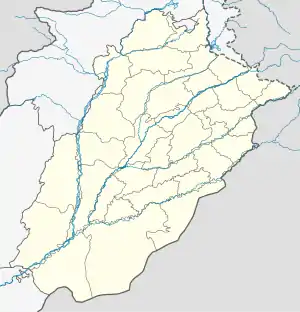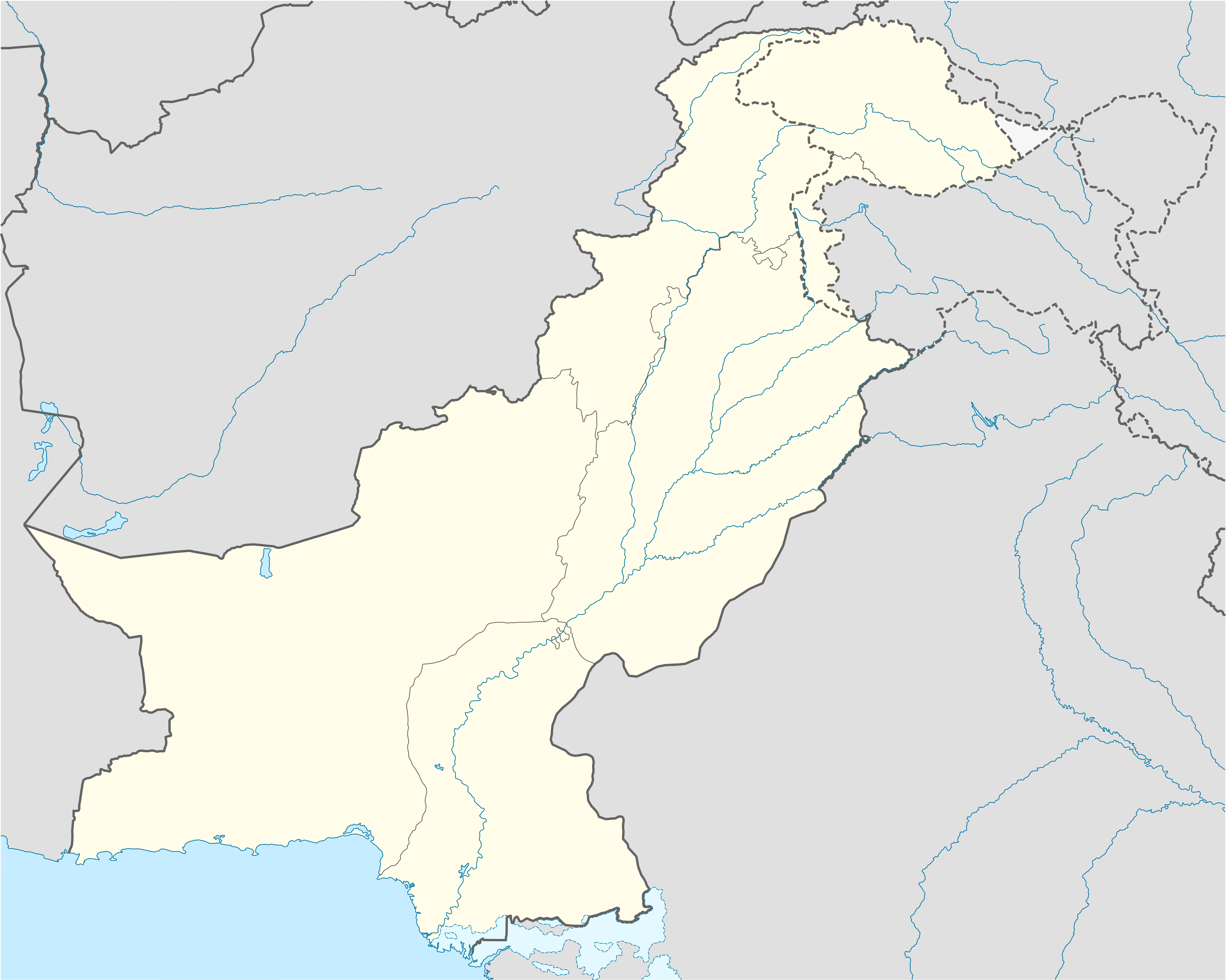Pindigheb
Pindigheb (or Pindi Gheb) (Punjabi: پنڈی گھیب), is a town in Punjab province Pakistan and seat of Pindi Gheb Tehsil (an administrative subdivision) of Attock District.[1] Western route of China Pakistan Economic Corridor (CPEC) passes through Pindigheb.
Pindigheb
پنڈی گھیب | |
|---|---|
City | |
 Pindigheb Location in Punjab, Pakistan  Pindigheb Pindigheb (Pakistan) | |
| Coordinates: 33°14′28″N 72°16′4″E | |
| Country | Pakistan |
| Province | Punjab |
| District | Attock |
| Tehsil | Pindi Gheb |
| Region | Pothohar |
| Elevation | 310 m (1,020 ft) |
| Time zone | UTC+5 (PST) |
| • Summer (DST) | UTC+6 |
| Area code | 0572 |
| Website | Tehsil Municipal Administration Pindi Gheb |
History
The Imperial Gazetteer of India, compiled over a century ago during British rule, described the town as follows:[2]
Pindi Gheb Town.-Head-quarters of the subdivision and tahsil of the same name in Attock District, Punjab, situated in 33º 14' N. and 72º 16' E., 21 miles from Jand station on the North-Western Railway. Population (1901), 8,452. Formerly known as Pindi Gheb drives from two words pindi which means town and Gheba who was a Gurkani Mughal Prince,Cousin of babur, Ancestor of Royal Gurkani Mughal Sardar family of Gheba and is now the ancestral home of the Johdra Rajputs and Ghebas, who founded it in the 15th century. The municipality was created in 1873. The income and expenditure during the ten years ending 1902-3 averaged Rs. 4,400. In 1903-4 the income was Rs. 5,200, chiefly from octroi; and the expenditure was Rs. 5,800. A vernacular middle school is maintained by the municipality, and a dispensary by Government.

In 997 CE, Sultan Mahmud Ghaznavi, took over the Ghaznavid dynasty empire established by his father, Sultan Sebuktegin, In 1005 he conquered the Shahis in Kabul in 1005, and followed it by the conquests of Punjab region. The Delhi Sultanate and later Mughal Empire ruled the region. The Punjab region became predominantly Muslim due to missionary Sufi saints whose dargahs dot the landscape of Punjab region.
After the decline of the Mughal Empire, the Sikh invaded and occupied Attock District. The Muslims faced severe restrictions during the Sikh rule . During the period of British rule, Attock District increased in population and importance.
The predominantly Muslim population supported Muslim League and Pakistan Movement. After the independence of Pakistan in 1947. The name of incumbent Assistant Commissioner of Pindi Gheb sub division is Ijaz Abdul Karim.
Language
As with the rest of Pakistan, Urdu has official status. However, the language variety spoken natively in the area is Ghebi – a Hindko dialect that is closely related to Chacchi and Awankari.[3]
References
Bibliography
- Shackle, Christopher (1980). "Hindko in Kohat and Peshawar". Bulletin of the School of Oriental and African Studies. 43 (3): 482–510. doi:10.1017/S0041977X00137401. ISSN 0041-977X.
- Gazetteer of Attock 1934